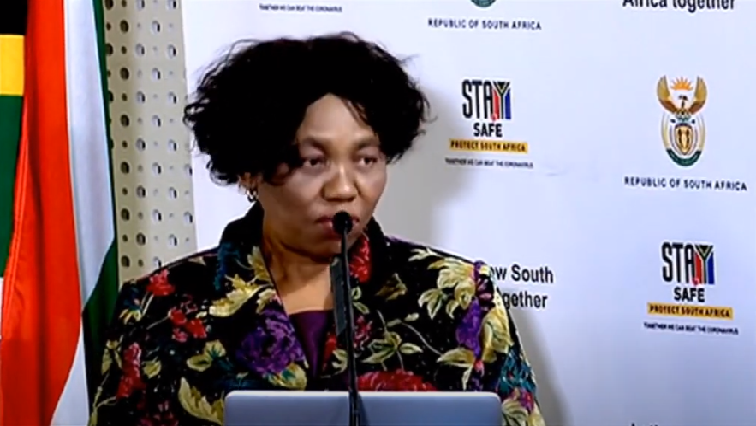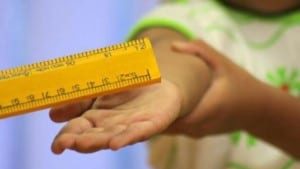Basic Education Minister Angie Motshekga will visit a few schools in Midrand, north of Johannesburg on Monday morning, to monitor their adherence to COVID-19 protocols, as the second phase of learners return to school.
During a media briefing on Sunday, the Minister said that Grades R, six and 11 would return to school from Monday – under strict COVID-19 health safety standards.
She also said that schools which were not ready to welcome Grade R learners should only reopen when all safety protocols are put in place.
Basic Education spokesperson Hope Mokgathle says the Minister will be making sure that schools have all the equipment as reported.
“She will be doing an oversight visit to three schools in Midrand, these are Midrand Primary School, Noordwyk Secondary and David Makhubo Secondary School. The three schools are in and around Midrand. Basically, what she will be doing there is to oversee and monitor if the schools are following the COVID-19 protocols as prescribed to ensure things like social distancing and make sure that schools have all the equipment as reported.”
In the video below, Basic Education Minister has announced the return of grades R, 6 and 11 pupils to school:
SADTU calls Motshekga to make health and safety of learners a priority
Meanwhile, South African Democratic Teachers Union (SADTU) has called on Motshekga to make the health and safety of learners her department’s top priority.
Motshekga said schools that were not ready must submit a strategic plan to her department on their preparedness for the return of Grade R learners by the end of this month.
SADTU’s secretary-general Mugwena Maluleke says the phasing-in of only three grades, R, six and 11 is an indication that the department is not ready to receive back learners at schools…
“Our submission to the minister had been to study the rising in numbers of the infections in the communities and the delay in phasing in other grades. However, we note that grades six and 11 will then be phased in. Our position remains that any school that is not in terms of the safety and health precaution should not risk receiving the learners.”
Learners going back to school around the country
A large number of learners are on their way to school in Jozini in northern KwaZulu-Natal.
Many are waiting on the side of the road for public transport.
Schools in this rural area have been battling infrastructure challenges since schools re-opened during the lockdown last month.
Late last year, storms destroyed many schools in the area and forced education authorities to accommodate learners in temporary structures.
In the video below, SABC looks at situation in KwaZulu-Natal:
The Eastern Cape Education Department says it’s not ready to phase in other grades just yet. The province will not welcome Grades R, six and 11 learners as announced by Minister Angie Motshekga.
Education MEC Fundile Gade says their decision is informed by the advice of the Health Department and the high coronavirus infection rate in the province.
Gade’s spokesperson is Vuyiseka Mboxela says there are certain things that needs to be put in place before the second phasing in can resume.
“There are some things that need to be put in place before the second phasing in can come in. More fundamentally the issue is that, if you follow the province’s infection rate, you’d find that there are areas wherein the virus is very high, hence therefore the decision to reschedule the return of grade R, 6 and 11.”
Western Cape Education MEC Debbie Schäfer says more than 520 schools have been affected by the coronavirus since the re-opening.
Schäfer was responding to questions during a virtual media briefing held by Basic Education MEC Angie Motshekga and Education MECs on the state of readiness to reopen schools for more grades.
“The total number of schools that have been affected is 525 schools, but that does not mean that currently infected. So, it’s very difficult to give statistics because they keep on changing day-to-day and it doesn’t really reflect the situation on the ground. As far as learners and teachers are concerned, we have been keeping data obviously from the time that we saw with the opening of the schools, but what hasn’t been brought into that is the number of people who already recovered. So at the moment you give us statistics for that is not going to be an accurate reflection of what the current situation is either.”
Northern Cape Education MEC Mack Jack says 25 coronavirus infections have been recorded in the province so far.
Jack says 40 000 learners are expected back at school in the province.
He says some of those who have been infected with the coronavirus include screeners, learners and those who handle food at schools…
“There were about 25 infections in total. Educators were 12 that were infected. One passed on, so it gives you eleven. Number of learners infected, six. Number officials one, number of screeners two. Number of food handlers, three and that gives you 25 for the whole period. And the number of schools that closed, 14 schools up to Friday, 14 schools closed and opened. And that is nine reopened, five still closed.”






